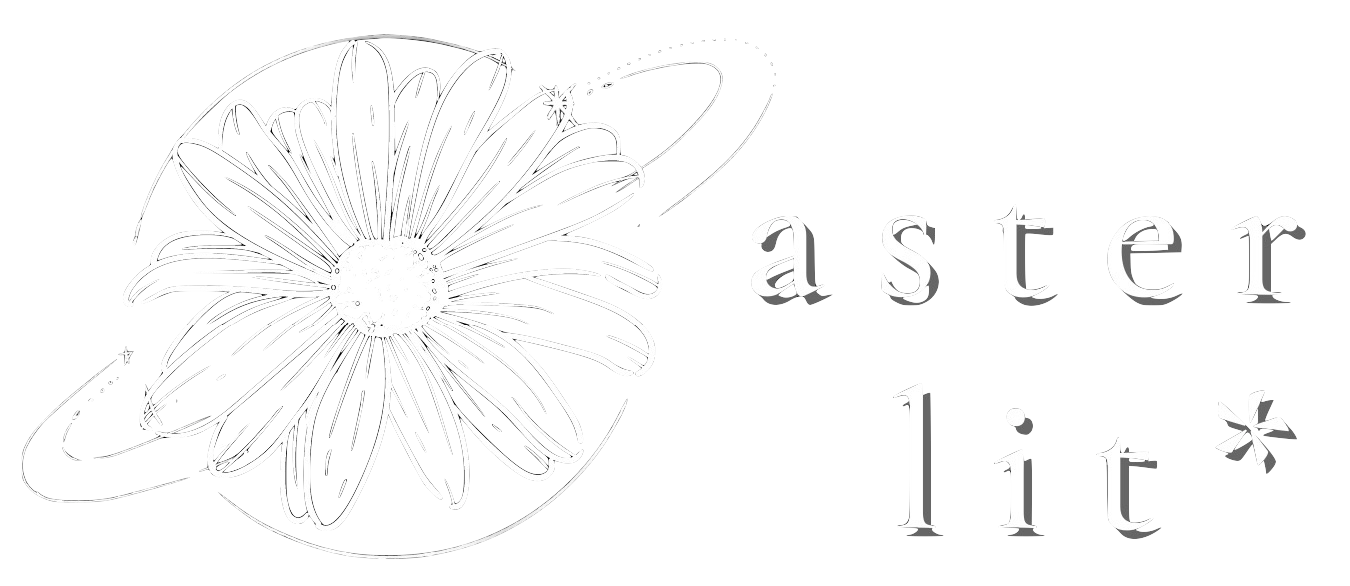
Aster Lit: Lacuna
Issue 10—Winter 2023
Rashk-e-Qamar
Unaiza Farooq, Pakistan
‘‘Rashk-e-Qamar: envy of the moon’
This is how an Instagram post I saw described a word I grew up reading; a word that my father
would use for my mother every time she would dress up. And although the post was correct, it did
not capture the feeling this word evoked when said in Urdu. It isn’t just envy of the moon- it’s
used to encompass a feeling of love that comes from looking at someone so beautiful, so full of
light that you know even something ethereal as the moon would be jealous of them. Even as I type
this, I feel I do not do this word justice.
That’s the thing about language: sometimes it’s not about the words, it’s about the sentiment
behind them. The nuances behind certain words just seem so difficult to translate into a different
language to me personally. The way ‘I’m sorry, I don’t understand’ to convey confusion, surprise
and excitement can be encompassed in a simple “Hain?!” is something that feels silly to explain
but completely sensible when I do it with my friends and family in my daily life.
While there are pieces of my language and culture I feel I cannot express in English, the opposite
happens more frequently. Over summer break, I was tasked with teaching Laiba, a student at an
underprivileged school. We had to go through her Mathematics, English and Science homework
together every day from 8 am to 12 am in the hot June mornings. During this time when I was
trying to teach her concepts, she would often ask me to translate words for her into Urdu so she
could understand them better, something I often failed to do.
As a type A student, this ate at me not only because I was stuck in a dynamic where I did not know
it all but also because this was my language; something that I grew up around, something I proudly
claimed as my own. These moments with Laiba gave me the opportunity to evaluate my
relationship with my language from both an English and Urdu speaking perspective. What
language was I truly fluent in? What culture did that make me a part of? What was my connection
with my identity based on? Revaluating my relationship after this interaction gave me a new
perspective on communication and linguistic barriers. With her, I found myself speaking in my
mother tongue more than ever before as I made an effort to connect with her through our shared
experiences of eating warm gulab jamuns and dancing in the rain. As for the more technical terms,
Google came in quite handy (but she doesn’t need to know that).
Not translating certain emotions and thoughts should not limit us in the grand scheme of things.
Sometimes, it gives different communities the opportunity have something special to them. It
shouldn’t be a basis for alienation, it should be an opportunity to explore how much different
cultures have to offer, even if one cannot fully comprehend it.
There are Danish, Japanese and Spanish words and phrases that carry sentiments I know for a fact
I may not be able to understand if I rely solely on their translations. But that is something that
encourages me to look into these languages as a whole- see where they stem from and explore
their colloquialisms. Not being able to understand and translate doesn’t discourage me anymore-
it gives me a new found appreciation for the language and its speakers.
While it is still not perfect and it never may be, now I try to make more of an effort to improve my
grasp on my language. I have read new books, discovered different poetry and started watching
more dramas (television series) as a way to learn more Urdu. And I just hope someday, when I
describe someone as rashk-e-qamar they know it’s coming from a place deeper than just
appreciation- it’s coming from a feeling that cannot be expressed in any other way.
Unaiza is currently in her last year of A-levels, studying in Lahore, Pakistan. She also serves as the representative of the Community Service and Environment club at her school, with a passion for volunteering. Her favorite hobbies include reading (which led to her starting a bookstagram that has amassed a following of over 2000) and spending hours upon hours on Pinterest and Canva- for content creation, of course.
